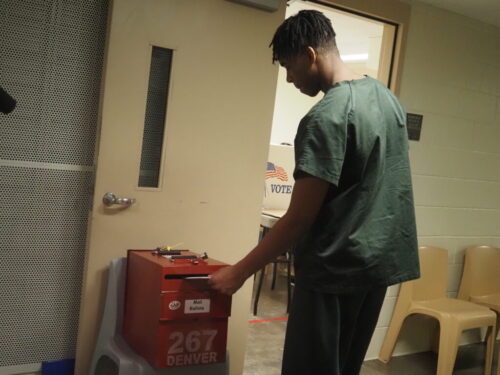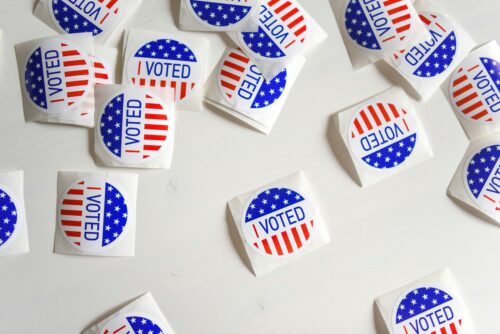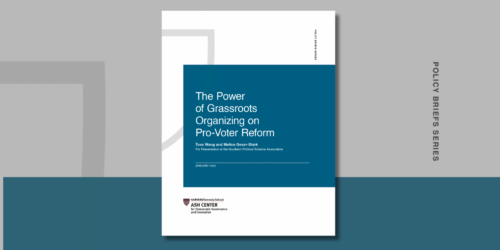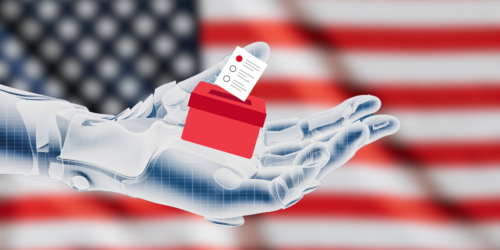
Additional Resource
Laws That Govern Jail-Based Voting: A 50-State Legal Review
As part of the Ash Center’s ongoing work examining the legal, political, and policy implications of advancing jail-based voting, Aaron Rosewood and Tova Wang examine the statutory basis for jail voting in each state.







